What to do if your child vomits
My child vomited, what should I do? - Hundreds of parents ask a similar question every day, because this phenomenon is far from the most pleasant, but often encountered. At the moment when vomiting occurs, the baby gets scared and most often cries from fear and discomfort. What about adults? Of course, parents are trying to alleviate their child’s condition as much as possible, but at the same time they are also worried, because something has gone wrong with their child’s health!
We decided to break down all the possible causes and consequences associated with childhood vomiting, and we will also tell you how you can help your child during nausea, when emergency medical care is required, and much more.
When considering this topic, it is necessary to know for what reasons a child may vomit.

- regurgitation of excess food, a similar phenomenon is most often observed in infants who, along with excess milk or formula, also get rid of the air “captured” while eating
- eating “bad” - spoiled foods
- eating foods that the child’s gastrointestinal tract cannot process, such as mushrooms
- overeating, many parents sin by trying to “stuff” their child with food, no matter what, as a result, the child may simply vomit due to such violence against the body. Also, overeating can occur at the child’s own request; this is often observed when a child “seeks” sweets at a holiday or at grandma’s house.
- aversion to food, sometimes children simply cannot stand any food, for example, boiled onions, but one of the adults in the family insists that this product be eaten by the baby, and, as a result, the child vomits due to disgust
- drug poisoning, sometimes this occurs due to an incorrectly calculated dose when treating a child for a disease, sometimes the child himself reaches for the pills that attract him and eats them without asking
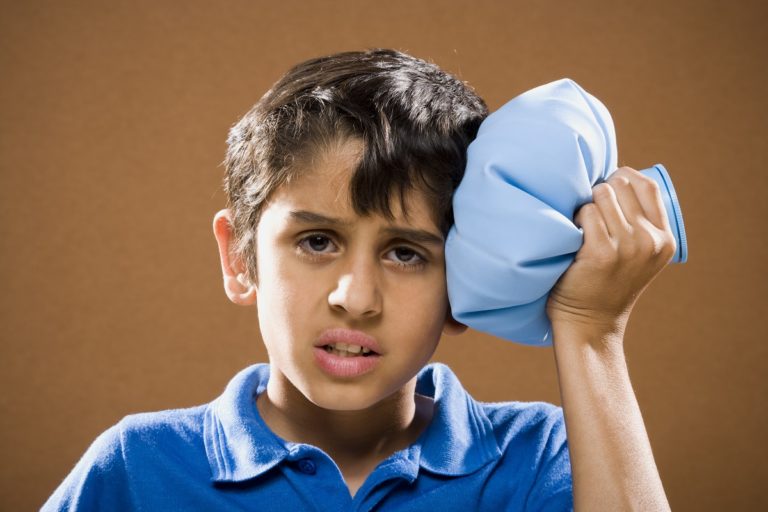
- - concussion, if the child has recently received a severe head injury, you can read in more detail about what to do in this case in our article: “”, so, in this case, vomiting may indicate that a concussion has occurred brain;
- intestinal flu, it is also accompanied by fever
- rotavirus infection may also be accompanied by an increase in the body temperature of the sick child, in addition, abdominal upset will be observed
- dysentery, salmonellosis
- severe cough with copious sputum
- renal failure
- purulent otitis media
- allergic reaction
Other reasons

- foreign body entering the stomach
- motion sickness in transport or on a carousel
- sun or heatstroke
- stuffiness, stale air, in a word - lack of oxygen
- severe stress, anxiety, fears
Now, knowing the possible reasons, it will be easier for you to navigate what could cause the baby to vomit in your particular case.
First aid
Depending on when the vomiting occurred - after or before a meal, at night or during the day, whether it is accompanied by a rise in temperature or not, whether there is pain in the abdomen or not, in accordance with these factors it is necessary to navigate and provide some kind of assistance to the child, and that’s what it is, we’ll talk about it in more detail!
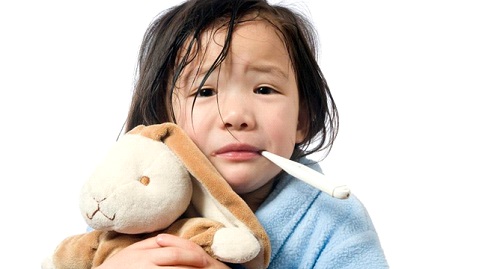
- If a child vomits and his body temperature begins to rise, this indicates that there is some kind of inflammatory process in the child’s body, perhaps this is the beginning of a rotavirus infection or some other disease. Don’t hesitate - call a doctor so he can make an accurate diagnosis.
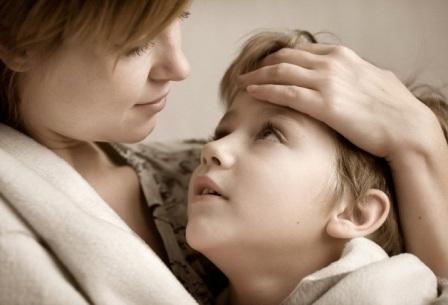
- If your baby vomits, you must first try to pull yourself together and show the baby that nothing bad is happening. After all, it is important for the baby to calm down so that you can understand whether there are other symptoms besides nausea or not.
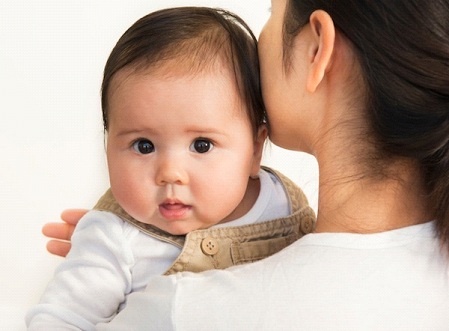
- If the child is an infant, then to avoid repeated vomit from entering the nasopharynx, place him on his side or hold him on his arms in an upright position.
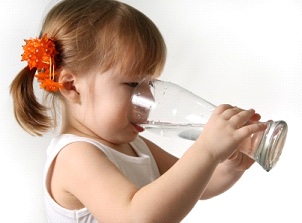
- When a child is vomiting, it is important to remember that dehydration occurs quite quickly in a child’s body, so it is necessary to start feeding the child water. The water temperature should be warm, but not hot; such liquid will be more likely to be absorbed into the walls of the baby’s stomach. Doctors also recommend using a product such as “Regidron” - it perfectly helps protect the baby from dehydration.
- It is necessary to feed the child with small portions of water; there is no need to force him to drink a lot of liquid at once. Give literally 2-3 teaspoons of water every 5 minutes, this will make it much easier for the baby to take the liquid. If the baby is still small and does not want to drink so often, then you can inject water from a syringe without a needle into his cheek, in small portions.
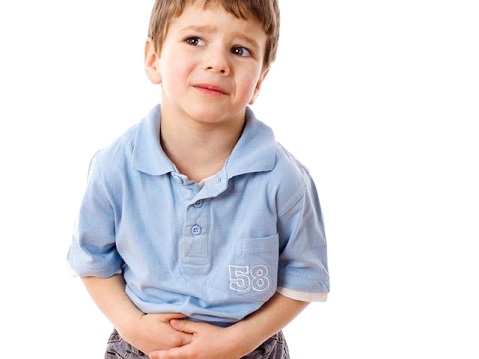
- If a child vomits at night and nausea is accompanied by abdominal pain, but there is no fever, this most often may indicate food poisoning or overeating the day before. The baby's parents will have to be patient - since there is a long night ahead and the child cannot be left unattended.
If repeated vomiting occurs and abdominal pain does not go away, call an ambulance.
If there are no repeated vomiting, and the pain in the small tummy has subsided, give the baby some water and stay close to him. In case of poisoning and overeating, a child may also develop symptoms, then Smecta and activated carbon will come to your aid

- Often children may feel sick due to strong emotions, for example, the baby cannot adapt to attending kindergarten, in this case you can see the picture - “the child vomited in the morning.” If your son or daughter previously cried, threw tantrums, said that they didn’t want to go to the garden, but as a result he is still taken there, then the body reacts on a subconscious level with illnesses, morning sickness and other negative actions that are harmful to itself - just to avoid visiting this undesirable place. What should parents do? Find out the root cause, communicate with the child, with teachers, visit a child psychologist, change the kindergarten to another. The main thing is to solve this problem!

- If a child vomits immediately after eating, then there is a high probability that he overate, the gastrointestinal tract could not cope with the load placed on it and removed excess food in this way. Adults need to remember that they should not force a child to eat more than he wants and can. But since the baby has already vomited, just let him drink some water and, next time, be smarter - do not force the child to eat food by force.
- If your child often vomits while eating, it is worth going to an appointment with a gastroenterologist to find out the reason for this reaction of the body. Perhaps the baby has some congenital problems with the stomach, maybe he has developed gastritis, in any case, this needs to be found out as early as possible.
- And, of course, nausea some time after eating may indicate food poisoning; depending on the frequency of vomiting and the general condition of the child, you need to decide whether you can cope with this problem on your own or whether you will need to seek the help of a doctor.
We hope that our tips will help you understand what to do if your child vomits. And we wish that such unpleasant events simply do not happen in your life! See you in new articles!







